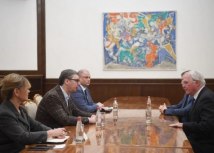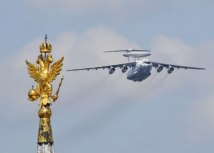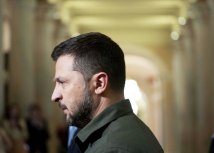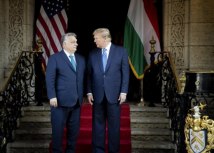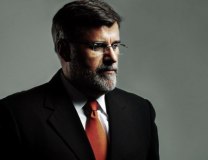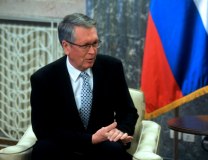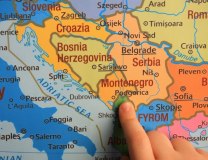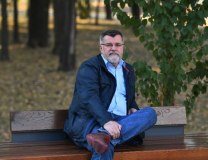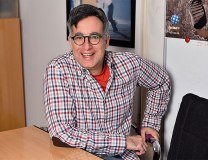What Maduro said about Trump, America, Russia
Venezuelan President Nicolas Maduro has given an exclusive interview to Sputnik, discussing relations with Russia, the ongoing crisis in the Latin American state and prospects for negotiations with the Guaido-led opposition, as well as US policy toward Caracas, including new sanctions on state oil company PDVSA.
Source: Sputnik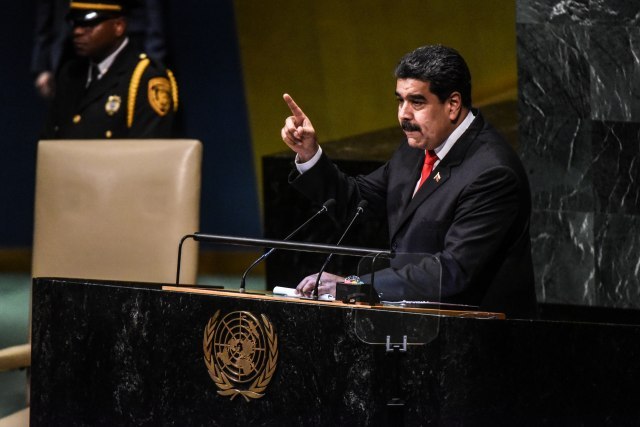
Sputnik: Now in this very critical situation for Venezuela, did you ask for any help from Russia? Perhaps about military or financial assistance? And, as we heard, a number of private security officers from Russia have now arrived in Venezuela, as they're saying in the media, to ensure your safety. Is this true or not?
Nicolas Maduro: President Vladimir Putin always provides us with assistance from Russia in every sense of the word, and we are grateful. What I asked President Putin is to keep in touch with us, to support us at the diplomatic and political level in the UN and to defend the truth of Venezuela internationally. During a conversation a few days ago, he told me that we would strengthen cooperation in the economy, trade, oil, gas, military affairs, in all areas.
In terms of military cooperation, we have Russian equipment of the highest level; the most modern weapons systems are in Venezuela. They are well deployed and all of our personnel are working. They have been trained in Russia. We have a very good relationship in terms of military cooperation with Putin.
Sputnik: In this situation, are you planning to request any new weapons?
Nicolas Maduro: We always have plans to advance cooperation in order to improve air defenses, artillery, and rocket technology. We will always be moving forward in this area. And the most modern weapons in the world will come to Venezuela.
Sputnik: When?
Nicolas Maduro: They arrive each month, there is cooperation each month. And this is normal, there is nothing extraordinary here.
Sputnik: Do you see any risks for Russia in terms of cooperation with Venezuela after the new US sanctions against PDVSA?
Nicolas Maduro: None. Because Russia is an independent, sovereign country. Russian enterprises are very powerful in the world, they have their own engineering personnel, finances, and logistics.
PDVSA is an enterprise of a sovereign country, and since we are two independent countries, we will do business, invest, and implement large oil production projects. Everything will be fine. A business between Russia and Venezuela in oil and gas is armour-protected.
Sputnik: Could you tell us if there is already a detention order against Mr Guaido because the General Prosecutor's Office announced that they would take certain measures against him?
Nicolas Maduro: This is the constitutional issue of Venezuelan justice. As the head of state, I believe that it was the promotion of a coup d'état, a violation of the Constitution. But this is only the opinion of the head of state. The Prosecutor General will have to act, and he has already begun to act, the Supreme Court will have to act — and it is already acting. And what the prosecutor's office and the courts decide will be executed in the Venezuelan legal system.
Sputnik: But a detention order does not exist yet?
Nicolas Maduro: As far as I know, this measure has not been adopted yet. Let's wait for the internal constitutional and judicial processes to see what the results will be. Let's not rush, we will wait.
Sputnik: How would you describe the US decision to transfer control over part of Venezuela’s assets to Guaido? What legal actions are planned?
Nicolas Maduro: This decision completely violates the norms of international law. This is an illegal decision seeking to expropriate a Venezuelan asset and a Venezuelan company. This is what we are going to demonstrate. I’m sure that we will come out winners defending Citgo as the property of the people of Venezuela. This is one of the most risky, adventurous and one of the most insane decisions by John Bolton.
Sputnik: How would you describe the overall economic situation in Venezuela?
Nicolas Maduro: We are in a stage of critical restoration. We’re overcoming obstacles and attacks on the exchange system and the pricing system. We have a consistent programme, a plan. I’m sure we will advance and make every effort to stabilise the current situation.
Sputnik: Do you expect a new assassination attempt against you?
Nicolas Maduro: That’s a difficult question.
Sputnik: Is it possible?
Nicolas Maduro: First of all, my fate is in God’s hands; I’m a Christian and I believe in the protection of the Lord… I’m protected by the people of Venezuela; we have a good intelligence service. However, there’s no doubt that Donald Trump had ordered to kill me; he told the Colombian government and the Colombian mafia to kill me.
If something happens to me, it will be Donald Trump and Colombian President Ivan Duque that are responsible for that. Meanwhile, I’m protected; we have a good protection system. Moreover, we have more substantial protection – the protection of God, who will grant me a long life.
Sputnik: Are Russian private security guards part of this protection?
Nicolas Maduro: I can’t tell you that. No comment. I'm not making any comment… I have no comment on that subject.
Sputnik: Are you ready to hold early elections, be it parliamentary or presidential?
Nicolas Maduro: It would be good to hold early parliamentary elections; that would be a good form of political discussion and a good decision with a popular vote. I would support it if it was done earlier, and if we held earlier elections to the National Assembly.
Sputnik: And what about presidential elections?
Nicolas Maduro: The presidential elections were held less than a year ago, 10 months ago. They were held in accordance with all constitutional and legal norms.
Sputnik: But part of the international community insists on a new presidential election…
Nicolas Maduro: This is an absurd trick by some countries obsessed with Donald Trump’s policies. We are returning to neo-colonialism when one European capital, I mean Washington, can give orders to any country in Asia, Africa, Latin America, or the Caribbean, basically to any country. But who are they to decide here? I won 68% of the vote. That was a legitimate victory; we held elections through a transparent electronic system, with international observation. We don’t accept any ultimatum from anyone in the world, don’t accept blackmail. Venezuela’s presidential elections have been held, and if the imperialists want new elections, they’ll have to wait until 2025.
Sputnik: Given John Bolton’s recent statement with regard to sending 5,000 soldiers to Colombia, how can Venezuela respond to a possible increase in US troops there?
Nicolas Maduro: First of all, I’d like to say that what John Bolton did was something very infantile, this is just clownish. To come out with a folder as if he’s the US president to read that he’d send troops to Colombia is just nonsense. Even Colombia’s government, Foreign Office and the Ministry of Defense have denied this. This is a provocation; this is rather childish on the part of John Bolton in his disappointment and hatred of Venezuela. This is stupid childish behavior.
Sputnik: Are you ready to meet with Mr Trump — invite him here to Venezuela, for instance, to discuss the current situation?
Nicolas Maduro: For all these years, I have been trying to reach him on a personal level — I have sent messages that reached Trump publicly, through the media, in order to establish a relationship with the US government, in order to have respect, a dialogue, despite the political, cultural, and ideological differences between Donald Trump and Nicolas Maduro. And it seemed like the window of opportunity opened for it. But Bolton prevented Donald Trump from initiating a dialogue with Nicolas Maduro. I have the information that he has prohibited it.
At this point, I think it is difficult. I am ready to talk with Donald Trump personally, in public, in the US, in Venezuela, wherever he wants, about any agenda, on any subjects he would like to discuss. Moreover, I am convinced that if we meet in person, it will be a different story. But I think, they will not give us a chance. Let's be patient. For now, I think it is very difficult.
Sputnik: What do you think are the primary motives behind US actions in Venezuela? Oil?
Nicolas Maduro: There are a couple of goals. The primary goal is to get Venezuelan oil since we have the biggest reserves of certified oil in the world. We are certifying what is on track to become the biggest gold reserves in the world, we have a quarter of world's gas, we have vast reserves of diamonds, huge reserves of drinking water, aluminium, and iron. We are a power in the field of energy resources, natural resources. But there is a certain point that needs to be taken into consideration, which is more than 200 years old. Venezuela is the country where Bolivar was born, we have the strongest Bolivarian tradition here.
Over the course of 200 years, our revolutionary project has influenced Latin America and the countries of the Caribbean. They [the US authorities] fundamentally want to destroy the example, the idea, the spirit of Simon Bolivar. This is the second big reason — to kill this spirit — spiritually, culturally, politically. And to move without any resistance to neocolonialism in Latin America. They [the US] consider us their "backyard". And we say, we are not anyone's backyard, we are an independent republic. As you would say in Russia, we have a 200-year historical impulse, we are winning and we will win.
Sputnik: If relations improve, will American companies, primarily oil companies, be able to return to Venezuela?
Nicolas Maduro: Over three thousand American companies are entered in the register of trading companies in Venezuela. They work in Venezuela. There are companies in the oil field like Chevron with large investments. I say to American investors in the field of oil, gas, tourism, technology, gold, and diamonds: despite the tense relations with Trump, you are welcome, let them invest and work in Venezuela. This tension should not prevent American investments in Venezuela. We welcome them.
Sputnik: Guaido promised amnesty to the military if they switch to his side. What is the current situation in the armed forces, following the proposal? Any disagreement with your government?
Nicolas Maduro: The subject of the armed forces is very delicate for any country. There are calls from the White House for the military to raise their weapons and refuse to recognis
ze me as the commander-in-chief, as the President of the Republic. And the right in Venezuela — this is not happening in any country — the right called on the military for an armed uprising, for a military coup d'état. This has never happened in Latin America. In the 20th century in Latin America, there were more than a hundred coups. But never, in spite of the fact that all the coups were prepared and carried out by the American Empire, the USA, neither the president, nor the secretary of state, nor a high-ranking official ever called for a coup. When Pinochet carried out a coup in Chile, the US government supported the coup later.
And not that President Nixon said: "There must be a coup". This is the first time in history. This indicates how desperate the White House is. This is a very delicate matter. What am I doing? I fulfil my duties as a supreme commander under the Constitution, rallying the national Bolivarian armed forces. And the Bolivarian armed forces demonstrate a lesson in morality, loyalty, and discipline. We will win a big victory — (establish) stability, peace, and loyalty in Venezuela.
Sputnik: You talked about the possibility of a dialogue with the opposition. Who could be a mediator if it takes place?
Nicolas Maduro: There are several governments, organizations in the world that demonstrate their sincere concern about what is happening in Venezuela, they have called for a dialogue. The governments of Mexico, Uruguay, Bolivia, Russia, the Vatican, some European governments support (call for) a dialogue. I sent official letters so that they maintain a dialogue in Venezuela — where they want, when they want and in the form in which they want. I am ready to sit down at the negotiating table with the opposition so that we can talk about what benefits Venezuela, for the world and its future.
Sputnik: Has there been a response from any country?
Nicolas Maduro: At this stage, we are talking about private negotiations, phone calls between presidents, the heads of foreign ministries. Our foreign minister is very active. We hope that there will be positive results in the coming hours.
Sputnik: Has your government requested financial assistance from the governments of Russia and China in recent days?
Nicolas Maduro: We have good financial relations with China and Russia, and they will develop. Relationships on financial cooperation in the area of wheat, for example. They finance, and we pay for it on time. Russian wheat has been very successful in Venezuela. This is cooperation for food security and independence.
China is financing oil production, and we hope to increase Chinese financing in the coming months. We count on strong support from China and Russia for the economic development of Venezuela.
Sputnik: Can your government guarantee that loans given by Russia and China will be returned?
Nicolas Maduro: Venezuela pays, and always on time.
